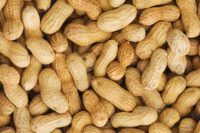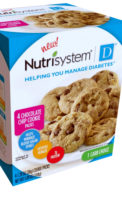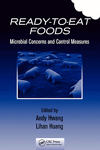Control Blood Sugar
PLT Health Solutions and Horizon Science introduce Benecarb Glycemic Balance Complex in North America
 PLT Health Solutions, Inc. and Horizon Science have introduced Benecarb Glycemic Balance Complex in North America. The ingredient—based on molasses phytonutrients—can reduce the glycemic impact of a broad range of everyday foods and beverages, with particular advantages in carbohydrate-rich formulations.
PLT Health Solutions, Inc. and Horizon Science have introduced Benecarb Glycemic Balance Complex in North America. The ingredient—based on molasses phytonutrients—can reduce the glycemic impact of a broad range of everyday foods and beverages, with particular advantages in carbohydrate-rich formulations.
High in natural antioxidants, minerals and polyphenols, Benecarb has been clinically shown to reduce the glycemic index (GI) of foods and beverages by up to 20% at addition levels of 4-6% of total carbohydrate content. These low use levels correspond to a low impact on the organoleptic properties of food and beverage formulations and contribute to cost-effectiveness in use. Benecarb is a 100% natural, clean-label liquid ingredient that can be added to existing formulations using existing processing equipment, with very little impact on food and beverage labeling. Use of Benecarb can support product claims of lower glycemic index, and consumer claims centered on support for blood sugar management and health.
Sid Hulse, PLT Health Solutions’ director of new product development, says Benecarb Glycemic Balance Complex helps food and beverage companies develop products that address blood sugar management and help a broad range of consumers.
“These days, the blood sugar impact of foods and beverages is on everyone’s mind – from the mom who avoids giving her children beverages that cause a sugar spike and wants foods that help maintain a healthy weight for herself, to the athlete who wants peak performance or the person trying to manage their blood sugar health,” says Hulse. “The choice of lower glycemic foods and beverages run from emotional and experiential to daily diet management and support of long-term health. Benecarb’s ability to lower the glycemic index of foods responds to all of these drivers.”
Lower glycemic index in foods and beverages
Benecarb Glycemic Balance Complex was developed by Australia’s Horizon Science (www.horizonscience.com), which specializes in molasses-based ingredients enriched with polyphenols for health benefits in blood glucose management.
Officials say Benecarb is derived from sugar-cane molasses and contains high levels of natural antioxidants, polyphenols and is rich in naturally available minerals. It is the synergistic effect of these micronutrients and plant bioactives that is thought to be the source of Benecarb’s sugar controlling capabilities. It has received US GRAS certification and UK FSA opinion as being “substantially equivalent to molasses,” allowing commercialization in Europe. It is non-GMO, kosher and halal compliant. The ingredient is covered by process, application and composition of matter patents.
Used in formulated foods and beverages, Benecarb has been shown to lower the glycemic index of food and beverage systems up to 20% based on the 100-point GI scale–and can change the GI classification of a food from high or medium to medium or low. This can support product-based claims of “Low GI” or “Lower GI.” Health benefit-based claims such as “Supports healthy blood sugar,” “Supports blood glucose management,” “Helps improve insulin sensitivity” and “Helps lower blood sugar spikes” are possible.
Clinically-studied GI reduction
A series of studies featuring seven everyday carbohydrate-rich foods was conducted to measure Benecarb’s role in reducing glycemic index. Benecarb addition relative to carbohydrate content was correlated to GI reduction. The studies showed that Benecarb reduced GI in all seven applications–by 8% to 20%. The percentage of GI reduction was shown to be dose-dependent and directly proportional to the amount of Benecarb added as a percentage of available carbohydrate. Equally as important, it was also shown that Benecarb reduced postprandial glucose and insulin response.
According to Dr. Barbara Davis, director, Medical & Scientific Affairs at PLT Health Solutions, these studies can support food and beverage claims that will resonate with consumers who want to make smarter food choices but still want to indulge.
“The term glycemic index is beginning to become known by consumers. But people implicitly understand blood sugar management and how it can benefit their lives,” she says. “A recent consumer survey showed that one-third of consumers would like more ingredients to help balance blood sugar. Blood sugar control is linked to issues such as long-term sustainable energy, weight control and the overall desire to live a healthier life. Benecarb can help address all of these issues.”
Hulse discusses the unique potential of Benecarb in the development of appealing new products.
“Many ingredient solutions that try to address blood sugar management involve replacing digestible carbohydrates with non-digestible carbohydrates and require substantial reformulation – often with results that impact taste and texture. With other ingredients, the amount of addition required to allow a claim makes them cost prohibitive. With Benecarb, product developers can simply add the ingredient to existing formulations–with little modification–to achieve significant improvements in GI. We think it is a win-win for product developers and consumers. What consumer wouldn’t choose a product that costs the same, offers the same look, taste and experience–but has better blood sugar impact?”
For more information:
Looking for a reprint of this article?
From high-res PDFs to custom plaques, order your copy today!






